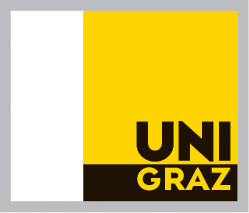Edward Spencer Dodgson an Hugo Schuchardt (146-02527)
an Hugo Schuchardt
07. 10. 1894
![]() Englisch
Englisch
Schlagwörter: Universität Zürich Biblioteca Nacional (Spanien)![]() Sanskrit
Sanskrit![]() Bretonisch Meyer, Paul Menéndez Pelayo, Marcelino Priebsch, Josef Gröber, Gustav Larrieu, Jean-Félix Coelho, Francisco Adolfo
Bretonisch Meyer, Paul Menéndez Pelayo, Marcelino Priebsch, Josef Gröber, Gustav Larrieu, Jean-Félix Coelho, Francisco Adolfo
Zitiervorschlag: Edward Spencer Dodgson an Hugo Schuchardt (146-02527). Madrid, 07. 10. 1894. Hrsg. von Bernhard Hurch (2015). In: Bernhard Hurch (Hrsg.): Hugo Schuchardt Archiv. Online unter https://gams.uni-graz.at/o:hsa.letter.3500, abgerufen am 18. 04. 2024. Handle: hdl.handle.net/11471/518.10.1.3500.
Madrid (Lista) October 7, 1894.
Dear Dr. Schuchardt,
I received your letter date Gotha 3 Oct: this morning, and find the writing less legible than usual. Be sure that I always read with interest and attention whatever you write. I left Portugal on Michaelmas day by train from Regoa, the capital of Port-Wine-land, for Salamanca where I spent two days & saw the gorgeous ceremony of the opening of the winter term of the University. After a night in the train and a day at La Granja where I saw the Infanta Isabella leave her apartments in the morning on horseback and in the afternoon driving with the reins in her own hands, though she looks older than her mother, I spent one night at Segovia & saw the outside of its Roman aqueduct & Romanesque churches & the inside of its beautiful early 16th century, renaissance Gothic, Cathedral. I reached this capital on Wednesday morning. I much prefer Spain to Portugal, for this reason among |2| others that the beds are so much better. Is the Germanic bett related to any part of the verb etzan? You will say I am insane. But I believe I lie not in affirming that there is a liaison between them. I have not at all a good opinion of the Portuguese as a whole, and quite share the opinion of Paul Meyer that theirs is not a contry [sic] to stay long in. I have twice met here in the Biblioteca Nacional Arturo Farinelli of Bellinzona & the Univ: of Zürich & professor in the Handelschule [sic] at Innsbruck, whose fame will be known to you. He tells me that he is intimate with Menendez y Pelayo whose lecture at the University I heard yesterday. He writes to Priebsch. I am thinking of beginning Sanskrit with the new Professor here D. Henrique Sons from Salamanca. Madrid has made wonderful strides |3| since I was here for the first & last time in May 1886. Alfonso 13 has past his childhood amid the birth of new monuments and new public buildings on all sides that will for ever bear the date of his innocent reign. The Biblioteca Nacional is being transferred to its new palace which will perhaps be ready about next June. The Leiçarraga which I hoped to work on cannot be found. I have asked in vain there and at the University Library, calle de San Bernardo for several other books. Tomorrow I shall try that of S. Isidro, calle de Toledo, which belongs to the faculty of Philosophy & humane letters. I am much obliged to you for being sponsor to my article. I await it, with or without a proof, from Professor Gröber. It is a pity that so interesting a language |4| as Basque has to go begging for a simple hearing! I have since 1886 observed the use of ca and carajo (Portuguese caralho = Phallus) in the mouth of Spaniards and think I have never heard the latter in any specially negative sense. So I prefer to think the former to be the Irish negative rather than a contraction of one of the obscenities with which the Spaniards and Portuguese delight in befouling their talk. As for bai in Portuguese. I have heard it so often without a trace of a resonance of an n that I am still more inclined to attribute it to Basque than to bene especially as they say ba ba also.
I have noted ja in Italy in 1878 & 1890-91 as yes & suppose it like the same word in Portuguese & ya in Spanish to be the latin jam used like sic for yes. The Bretonja is probably more nearly related to German ya. I have pointed out to Larrieu, who does not know Basque well, two serious faults in the translation1 of the first & only song circulated in the advertisement |1|2 in the Romania of last August or September. You can get Californiako Heskualherria on |4|3 sending 15 francs a year to J. P. Goytino, 330 New High Street, Los Angeles, California, U.S.
4Yours very truly
E. S. Dodgson.
5 Can you explain niscarro a generic term for mushrooms & toadstools in Tras-os-Montes?
|2|6 Can Basque acheter come from archiatreἀρχιατρος which seems to have once been a common word in French?
7 Can aps in Portuguese come from apex as used by St. Jerome for any thing very small? (St. Matthew). Do you agree with what Adolpho Coelho says about Balsa? I have found |3|8 the word spelt in many different ways meaning company, group, marsh, swamp, but thought that they were ideologically at least distinct.
9 The Tras(os) Montanos use pocho, potchou like the Basques as a familiar name for dog & like Basque pocho-a chiefly as a vocative.
1 Dodgson setzt den rechten Rand hinauf fort.
2 Fortsetzung am linken Rand.
3 Fortsetzung am linken Rand.
4 Randnotiz auf der rechten Seite.
5 Notiz kopfüber am oberen Rand.
6 Randnotiz die rechte Seite hinunter.
7 Randnotiz die linke Seite hinauf.
8 Fortsetzung den linken Rand hinauf.
9 Randnotiz auf der rechten Seite.
